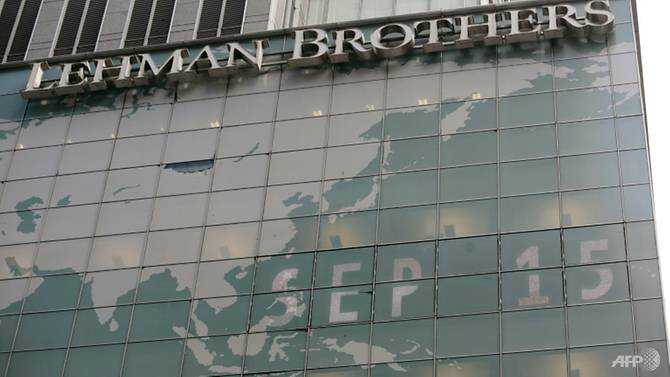'Banking is still a highly leveraged industry' 10 years after the collapse of Lehman Brothers
16 September, 2018

On Sep 15, 2008, US investment bank Lehman Brothers filed for bankruptcy, sending shockwaves across global financial markets.
With more than US$600 billion in debt, Lehman Brothers’ bankruptcy filing was the largest in US history.
Weakened by its heavy investment in subprime mortgage-backed securities, the bank's problems were made worse when it was unable to find a “white knight”.
Despite being the fourth largest investment bank in the US at the time, the government did not come to Lehman's rescue. It was not considered too big to fail.
Its collapse triggered economic turmoil in the US and elsewhere. The Dow Jones Industrial Average suffered its largest one-day decline since the Sep 11, 2001 attacks. Questions were raised about the stability of the financial system.
The US government pledged trillions of dollars to prop up the financial system and spent hundreds of billions more on fiscal stimulus to prevent the economic disaster, the worst since the Great Depression of 1929, from getting worse.
Now, 10 years on, has enough been done to avoid a repeat of these events?
Mr David Marshall, senior analyst for Asia-Pacific banks at independent research provider CreditSights, thinks that regulators have learnt their lesson – to some extent.
Mr Marshall said in this week’s Asia Business First podcast, “Capital requirements have gone up. They require banks to hold much more liquidity. So they have strengthened banks considerably, but I think we need to put this in perspective.
“Before the financial crisis, leverage was so high that some banks were operating with a leverage ratio of, say, 50 times. Regulators said that was far too high. But even now, in theory, they could be leveraged up to 30 times. Banking is still a highly leveraged industry. So you just cannot protect banks from all failures.”
And that could come from an unexpected source.
"Financial crises are almost always triggered by smart people finding clever ways to do new things with leverage, particularly with leverage that isn't too transparent," he said.
“They have their own bonuses to think about. They want to make money. And more broadly, some people would argue that banks will almost always set out to produce more credit than is good for the economy because they want to push out more loans and get more revenues and grow their business. I think it is an almost inevitable result of competition. Which is why I say that the regulators cannot stand still. They must be always on the ball and looking for new things that might go wrong,” he added.
The difficulty is striking the right balance in the regulations, said Mr David Kuo, CEO of financial services company Motley Fool Singapore.
“If you tighten up the regulation, it could make it more difficult for banks to generate the return on equity and dividends. You cannot make it so difficult for banks to make money. At the same time, you cannot be so relaxed that the banks can run roughshod over the rules and generate huge amounts of profit at a risk.
Mr Kuo also spoke of the role consumer confidence plays in the banking system.
“It is really confidence that is important. If you are confident that a bank will be OK, then it will be OK. If every depositor and every saver went to the bank and said, ‘I want my money back’, there is absolutely no way the bank can refund all of that money to all of its investors and savers.”
Mr Kuo recounted the bank run on one of the UK’s biggest mortgage lenders, Northern Rock in 2007, the first on a British bank in 150 years.
“Queues were forming outside Northern Rock. Depositors were calling for their money. And when you see situations like that, the governments had to step in because if they do not stop a bank run on one bank, it is going to spread to all the other banks.”
But are governments likely to do so again?
“In the US, they have passed legislation to make it difficult. In reality of course – when push comes to shove – they probably will. But they definitely have put rules in place to make it difficult for governments to provide as much taxpayer support as they did before. But I think Asia is very different in this regard. And the assumption that governments will support banks is very widely held and probably is still correct for the time being,” Mr Marshall said.
